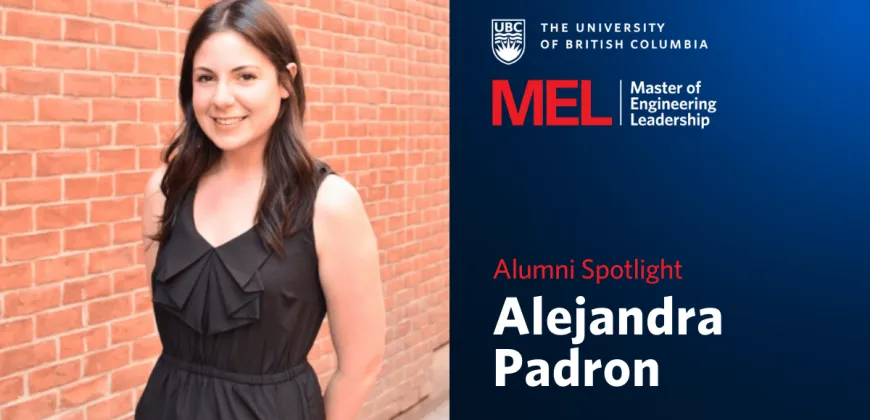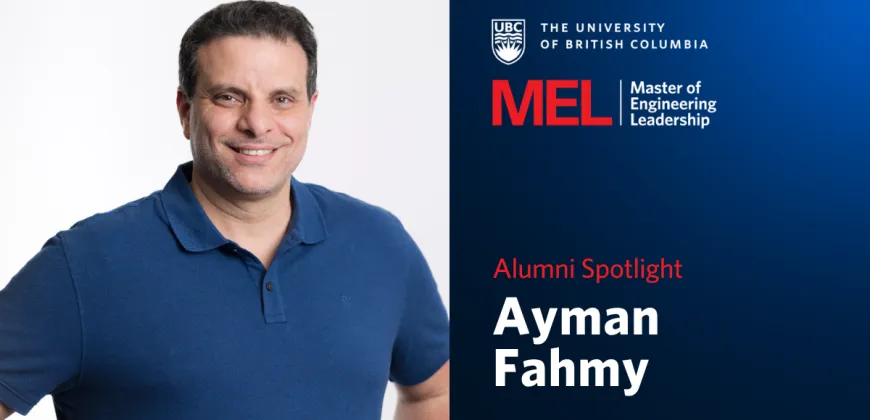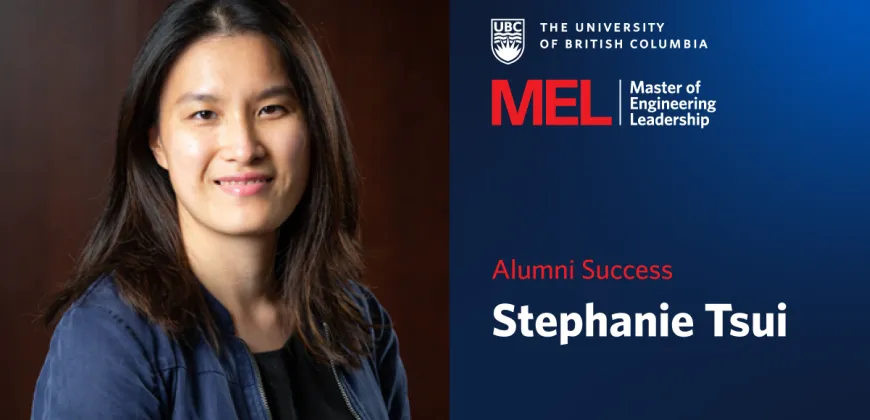Alumni Spotlight: Alejandra Padron
Alejandra Padron valued the integrated nature of the MEL in Urban Systems – both for its holistic approach to urban systems infrastructure and for the business and leadership courses, which enable students to become “better architects, engineers and planners.”

With a degree in urban and regional planning from Toronto Metropolitan University (formerly Ryerson University), Alejandra Padron worked as a land use planning consultant in the Greater Toronto Area. Her work involved managing development approval applications, leading multidisciplinary consultant teams, and making presentations to municipal governments and other stakeholders to help projects get built.
“I enjoyed my work, but I wanted to do something at a higher level, perhaps working within government or writing policy,” she says.
"I thought a master's program would help me gain a better understanding of the larger infrastructure network and how projects impact a community. When I came across the MEL in Urban Systems, it all clicked into place. The program fit what I wanted to study, and I thought the business courses could help me grow into leadership positions down the line."
An integrated approach to urban planning
The Master of Engineering Leadership (MEL) in Urban Systems introduces students to the technical, social, environmental and economic factors that contribute to decision-making in the field and that can support healthy, resilient cities. Taking courses ranging from infrastructure asset management to urban systems and society, students learn about specific urban systems as well as how they interconnect with each other.
In the urban systems engineering course, for example, students gain familiarity with water distribution, wastewater treatment, transportation, energy and even health-care systems. They then apply this knowledge in a project to improve infrastructure delivery within a master-planned community under development.
“We had to look at actual issues in the area and be mindful of how those might impact our infrastructure decisions,” says Alejandra.
“It really forced you to put the proposal into context instead of just coming up with utopian thinking. You had to be realistic and confront the reality of urban planning.”
Students also worked together on other projects to propose solutions for real-world challenges. In the urban systems planning class, Alejandra was part of a research project exploring whether people were following no-smoking and no-vaping guidelines on campus and developing recommendations to achieve greater compliance.
She says that the program brought together students with diverse backgrounds in architecture, planning and civil engineering who had worked in Asia, Africa and North America.
“We had different worldviews and diverse perspectives from different disciplines,” she says. “That meant for a lot of knowledge sharing and learning from each other, which was a very nice way to learn.”
Business fundamentals and leadership development
The business and leadership classes within the MEL explore topics on organizational leadership, strategy and innovation, and business acumen for technical leaders.
“The very first course you take is on organizational leadership, which is all about teams: how you manage your teammates, your direct reports and your manager,” she says. “It’s very useful information for both the program itself – because you have to be effective with how you manage your team – and when you go back into a workplace. I definitely saw my classmates using the skills we learned in this class over the course of the year.”
Now a development manager for BC Housing in August 2020, Alejandra saw a job posting with BC Housing that piqued her interest. However, given that she was months away from graduating, she decided to reach out to people on LinkedIn in similar roles to learn more about the organization and its work helping British Columbians find safe, secure and affordable housing.
Luckily for her, a similar position came up again in December, and she was successful in getting the job.
Now working as a development manager, Alejandra is overseeing several BC Housing projects in the province’s interior that are at different stages of development. Her work includes obtaining municipal approval for new housing projects, moving them through the construction process and turning the completed projects over to operations so that people can move in to their new homes.
“I’m working with multidisciplinary teams that can include architects, planners, engineers, construction contractors, surveyors, heritage consultants and more, so you have to learn to speak the languages of many different disciplines,” she explains.
“It’s a similar position to what I was doing as a consultant in the private sector before the MEL, but the focus is different. The people who will move into these buildings really appreciate when the housing units come online. It makes a world of difference for their lives and it is very rewarding to be part of that.”
–
Take the steps to join the next cohort of engineering leaders. If you haven’t already, assess your eligibility and sign up for the upcoming information session to learn how to submit a strong application. Learn more about this innovative master’s program:



